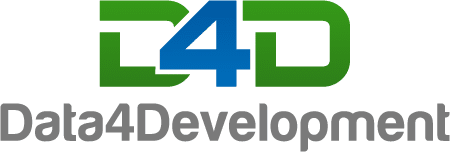Those of you who know Data4Development closely, know that we are encouraged to learn and grow besides our regular work. This week for learning I spent time attending a webinar hosted by Data2x on Data feminism as well as spending time reading Cythia Enloe’s book ‘The Big Push: Exposing and Challenging the Persistence of Patriarchy’.
Cynthia Enloe reveals how patriarchy is adapted and sustained by its adherents and she discusses how knowledge is essential to challenging it. In this highly engaging and thoroughly global study she shows how complicity reinforces discrimination, so that masculinization and militarization can constantly adapt rather than fundamentally change. Similarly Klein and D’Ignazio’s (the authors of the book Data Feminism) observe how narratives around big data and data science are overwhelmingly white, male, and techno-heroic. Both books spell out just how powerfully our world today is shaped by the hierarchies and biases. While reading Cynthia’s book gives you analytical tools for resistance against patriarchal systems. Data feminism offers strategies for data scientists seeking to learn how principles from feminism can help them work toward justice, and for feminists who want to focus their efforts on the growing field of data science.
In our own work at Data4Development we help Nonprofits to maximize their impact through data driven knowledge. We use an inclusive approach to all our work:whether it’s hiring team members or data literacy training. For example when we help nonprofits to publish in IATI, we encourage them to go beyond their contractual obligations by including results data that is dis-aggregated by gender and age organisations. This can ensure that their publication tells a more complete story. Our IATI data research focuses on what value the IATI data can potentially have for political agenda setting, for example on the inclusivity of women and other minorities.
